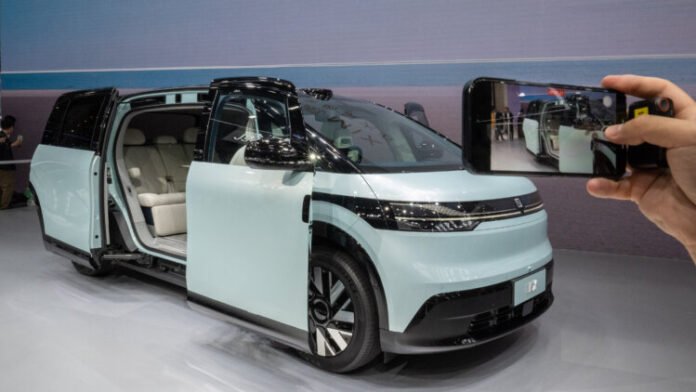ISLAMABAD: The electric vehicle (EV) revolution is finally finding its footing in Pakistan as the government announces plans to make Islamabad a model EV-ready city. In a groundbreaking move, charging stations will soon be installed at every fuel station across the capital, addressing one of the biggest hurdles to EV adoption: infrastructure.
Despite nearly half a dozen companies introducing EVs in Pakistan, the market remains sluggish, with monthly sales averaging just 50 units. Industry experts cite high vehicle prices, inadequate charging facilities, and an underdeveloped road network as key barriers. Over the past year, fewer than 600 EVs have been sold nationwide, leaving much room for growth.
To change this trajectory, the Ministry of Industries and Production is rolling out a comprehensive EV policy, starting with Islamabad. Federal Minister Rana Tanveer Hussain, chairing the fourth meeting on EV Policy, directed the Capital Development Authority (CDA) to ensure charging stations are installed citywide. He praised the CDA’s proactive role and outlined ambitious plans to position Islamabad as a showcase for EV adoption.
As part of this initiative, the government also announced exciting incentives:
- Top 120 Federal Board students will receive free electric bikes.
- 39,000 electric bikes and 19,000 electric rickshaws will be offered on subsidized loans.
- 40 charging stations are being developed along motorways and highways, with digitized processes ensuring transparency.
This push aligns with the Prime Minister’s vision of transforming Islamabad into a model city. An official announcement of the EV Policy is expected soon.
Chinese Investment Supercharges Pakistan’s EV Market
The timing couldn’t be more critical as global EV giant BYD prepares to enter Pakistan in collaboration with Mega Motor Company (MMC), a subsidiary of Hub Power Company Limited. Together, they are setting up a $150 million manufacturing plant near Karachi, capable of producing 50,000 units annually.
Local players are also stepping up. Regal Automobiles recently unveiled Pakistan’s first locally assembled electric SUV, the Seres 3, priced at over PKR 8 million, while Dewan Farooque Motors has delivered over 100 units of the Horni EV.
Policy Shifts: A Double-Edged Sword for Investors
While the government’s EV push is promising, frequent policy shifts and overlapping frameworks have raised concerns. The upcoming EV Policy for 2025-2030, which incentivizes completely built units (CBUs) through lower duties, risks clashing with the ongoing Auto Industry Development and Export Policy (AIDEP) 2021-2026, creating uncertainty for investors.
Chinese manufacturers are particularly cautious, as policy inconsistency and unmet commitments could deter further investment. Yet, many remain optimistic about reshaping Pakistan’s auto landscape, transitioning from fossil fuels to clean energy vehicles.
The Road Ahead
While challenges remain, the government’s bold initiatives, coupled with local and international investment, signal a turning point for Pakistan’s EV industry. With Islamabad leading the charge, the dream of a cleaner, greener future might just become a reality.




